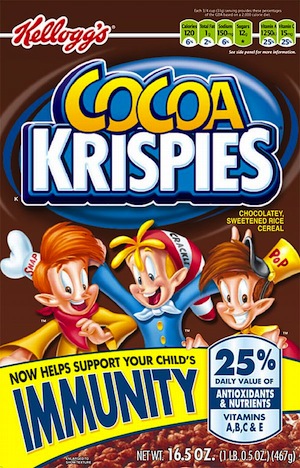Imagine this: you walk over to an office desk and there’s no clutter. It’s simple, organized and easy to find things. It only contains what you need to get your work done. How do you feel?
Now, imagine this: you walk over to an office desk and it’s filled with papers, notes, envelopes, pens, books, dirty food plates, CDs, keys and magazines. Stuff is all over the place. You can’t find anything you need. How do you feel now?
Well, guess, what. Just like our desks, our minds can either be clean and organized. Or messy and scattered. And it’s not our genes or our circumstances that determine our mental organization. It’s our decisions that lead to mind clutter. But here’s the good news. Just as we can choose to be cluttered, we can also choose to declutter.

Competition for valuable mind-space
When we acquire new information, we take it in, into our brain, our body, and our life. Yet our brain is valuable space. And our resources aren’t unlimited. So, when we’re constantly accepting new information, we’re cramming more into a tight space. And if we’re not careful, we could be kicking valuable information out and replacing it with not-so-valuable stuff.
Do you continue to find the least amount of time for the most important things? Things like exercise, eating nutritious food, family, hobbies, outdoors, spiritual pursuits… oh — and following your dreams? Well then you could be cluttering your mind with low-priority, low-importance information. And you could benefit from a declutter.
Since this is a nutrition and exercise web site, let’s talk fitness for a minute. The areas of our minds related to fitness and nutrition information processing are magnets for clutter. We’re always trying to learn new tips and tricks. We’re always looking for new experts and gurus. We’re also looking for the lost strategy or the cutting edge strategy.
Interestingly, some of the fittest people we know avoid endlessly scouring web sites, magazines, and seminar notes. Rather, they take a cleaner, simpler approach. And, in this case, the de-cluttering and simplifying gives them the freedom to listen to their inner voice – to choose which exercise and nutrition options are best for them – rather then getting distracted by every bit of information that shows up.
Brain clutter examples
Simplicity is having everything we need with the additional benefit of being able to locate it. When we get rid of mind clutter, we discern essential from unessential information. So, what is this brain clutter I speak of?
Well, food rules, for example. Like the following:
- “Carbs make me fat.”
- “Frozen vegetables aren’t nutritious, I can’t use them.”
Exercise rules too:
- “I have to go to a gym to exercise.”
- “If I don’t use the treadmill, it’s not a workout.”
Advertising for food, exercise equipment and supplements count too:
- “I have to use [insert product, food, supplement here] or I won’t succeed.”
- “I have to eat cereal for breakfast.”

When we have this clutter floating around, it will surface each time we try something new.
- Sitting down to a new lunch combination? Not until you get by brain clutter.
- Are you eating carbs before bed? Nope, brain clutter will step in before that happens.
- Trying to schedule a new workout? Don’t be surprised if brain clutter crashes the party.
What to do with brain clutter
Here are some strategies for de-cluttering as well as avoiding future clutter.
Insist on quality information
- Nutrition and exercise are built upon complexity. So you have to simplify.
- To this end, use evidence-based decision making. Observe and learn.
- Ask: “Where does this information come from?” Some magazine at the hairdresser’s? Or a ScienceDaily.com?
- And: “Who benefits from me absorbing and using this information?” Big food companies?
- If a piece of knowledge doesn’t help you, toss it.
- If we fill up our minds with low-quality information, we’re doomed because it’s endless.
- But if we only hang onto the concepts that really benefit us, the high-quality stuff, we’re set.
Do seasonal mind de-cluttering
- Annual cleaning should include getting rid of mind clutter.
- Recycle the old mags, books, and newsletters.
- Unsubscribe from blogs.
- Nix the TV shows, etc.
- If these things just add to your mind clutter, cut them out.
Think about what holds you back
- Is it the time commitment?
- The feast and famine cycle?
- Organization?
- Information overload?
- Too many options?
- Whatever it is, clutter is a contributor. Dump it.
Don’t throw everything away
- Not all nutrition and exercise information is clutter — otherwise I wasted about 7 years of schooling.
- Some information helps us.
- It’s good to have knowledge about hunger cues, refined sweeteners and steaming vegetables.
- Hang on to these type of things.
Don’t justify
- Holding onto clutter is human nature.
- For example, many people hold onto the diet mentality because they enjoy participating in the “last supper” and going on a food bender before starting another diet.
- It’s like an addict justifying a fix.
- If they get rid of the diet mentality and mind clutter, they won’t be able to rationalize the food bender.
- Uh oh — time for reality.
Dispose of stupid food rules
- When I was 16 years old, I spent one year of my life not eating more than 1 piece of fruit
- I read in Flex magazine that it would make me fat. Finally my trainer snapped me out of it.
- I still know plenty of people who base critical food decisions on the latest news nugget
- Those bits of info are generally worthless and created by the staff intern.
Focus on priorities, values, and principles
- It’s easy to get uptight about minutiae.
- But really, you don’t need to know the kcal/carb value in two carrots if those are your only veggies
- Are you doing and thinking about the “big picture” basics and foundational principles that really drive success?
- And are you doing these consistently?
Consider future clutter — then cut the source
- We might de-clutter, but then we crack open the latest fitness magazine and fill right back up.
- Bring your attention elsewhere.
- Bring it to places that don’t accumulate mind clutter.
- It’s hard to collect mind clutter when you are volunteering, reading a fiction book, watching a movie, taking a walk outside, meditating, doing yoga, listening to music, in dance class, or working on a puzzle.
- Cut the mags, blogs, newsletters, TV shows, colleagues, friends, etc. that feed foolish mind clutter.
Turn off the TV
- TV is a clutter machine.
- Worse yet, creative impulses are neutralized by TV.
- I got rid of mine. You don’t have to. But you can certainly cut down on TV time.
Learn more
Want to get in the best shape of your life, and stay that way for good? Check out the following 5-day body transformation courses.
The best part? They're totally free.
To check out the free courses, just click one of the links below.



Share